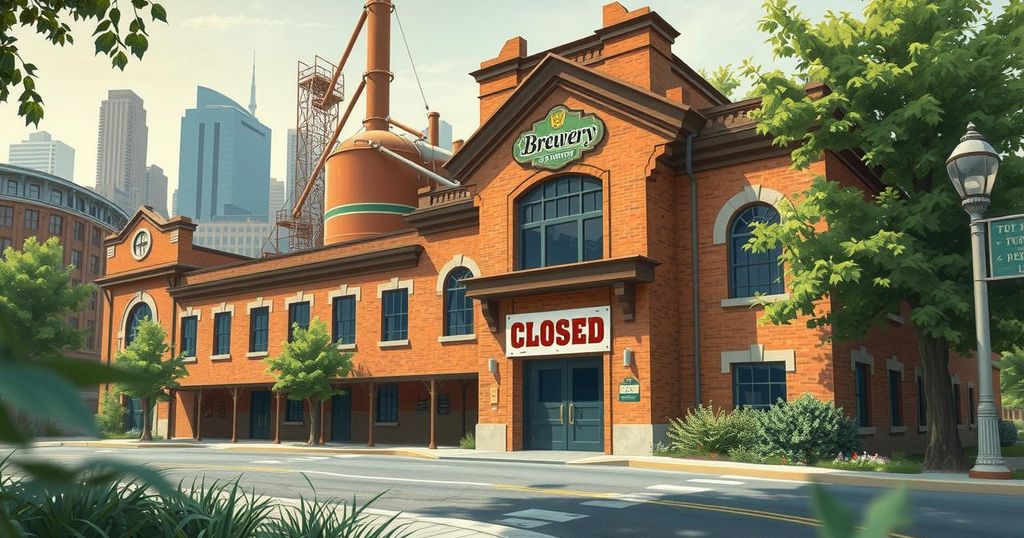Congo Conflict Results in Heineken Brewery Closure and Economic Decline
The conflict in eastern Congo has led to the closure of Heineken’s Bralima brewery in Bukavu, critically impacting the local economy. Businesses are struggling, with essential supply chains disrupted and rampant inflation affecting residents. Without resolution or peace, the humanitarian crisis intensifies, threatening employment and essential services.
The ongoing conflict in eastern Congo has led to the closure of the Heineken-owned Bralima brewery in Bukavu, severely impacting the local economy. Bar owner Adolphe Amani faces imminent closure as he struggles with reduced supplies, stating, “We can’t hold out any longer. We can’t pay the rent, electricity, water or our taxes.” The situation has worsened, fueled by the Tutsi-led M23 rebels who have taken over significant areas, including Bukavu, leading to rampant inflation and the disruption of essential services.
The M23 uprising, reportedly backed by Rwanda, has resulted in a humanitarian crisis in Bukavu, with displaced farmers unable to tend to their crops and businesses unable to operate normally. “We can no longer access our fields or our bank accounts. The economy is blocked and paralyzed,” lamented Merci Kalimbiro, a resident of Bukavu. Banks remain closed, and the supply of cash is critically low due to the ongoing turmoil.
The economic ramifications extend beyond small enterprises; Heineken itself reported significant losses. The brewery facilities, crucial to the local economy, suffered extensive damage from looters amidst the unrest. Heineken has acknowledged that it will take time to assess the full extent of the damages. The company’s revenues, especially from its operations in Congo, are critical, as approximately 14% come from Africa and the Middle East.
With operations now suspended, Heineken emphasizes the urgent need for lasting peace to restore business viability. The brewery directly and indirectly employs around 1,000 people in Bukavu, highlighting the extensive socio-economic impact of the conflict. Meanwhile, Amani struggles to sustain his business, recently placing more than 30 employees on furlough due to the brewery’s closure.
Compounding the crisis, the local water utility REGIDESO relies heavily on Bralima for its revenue, accounting for approximately 40% of its income. The shortage of funds is jeopardizing water purification efforts, raising fears of a looming disaster should operations cease. Amani remains resolute, expressing his unwillingness to source beer from Rwandan competitors, saying, “I cannot consume products that come from Rwanda. They are our enemy.”
Consequently, the interplay between the conflict and local businesses persists, amplifying concerns about further economic decline and humanitarian challenges in the region.
The closure of the Heineken-owned Bralima brewery due to the ongoing conflict in eastern Congo has triggered significant economic repercussions for local businesses and residents. Bar owners like Adolphe Amani are facing imminent closures, while the disruption of essential services and skyrocketing prices threaten the community’s livelihoods. The intertwining of conflict and economy highlights the necessity for a resolution to restore stability and protect local businesses and services.
Original Source: www.usnews.com




Post Comment